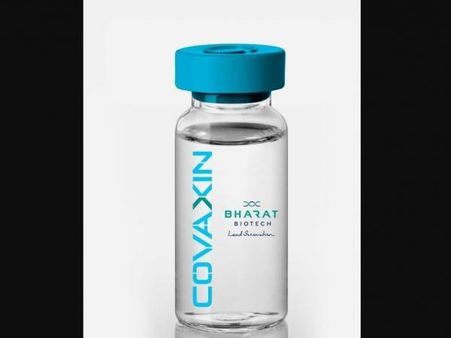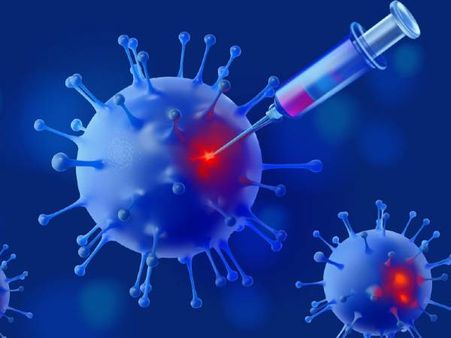Just In
- 9 hrs ago

- 10 hrs ago

- 14 hrs ago

- 15 hrs ago

Don't Miss
- Sports
 Today's IPL 2024 Match Prediction, DC vs GT: Who Will Win Delhi Capitals vs Gujarat Titans Match 40?
Today's IPL 2024 Match Prediction, DC vs GT: Who Will Win Delhi Capitals vs Gujarat Titans Match 40? - Finance
 6,693% Returns: Below Rs 75, Pharma Penny Stock Ex-Dividend For Rs 40/Sh Payout After 9 Years; Do You Own?
6,693% Returns: Below Rs 75, Pharma Penny Stock Ex-Dividend For Rs 40/Sh Payout After 9 Years; Do You Own? - Technology
 Apple Confirms Special Event for May 7: iPad Air, iPad Pro 2024 Models Expected
Apple Confirms Special Event for May 7: iPad Air, iPad Pro 2024 Models Expected - News
 Senator Lambie Calls For Elon Musk's Imprisonment Over Wakeley Church Stabbing Posts
Senator Lambie Calls For Elon Musk's Imprisonment Over Wakeley Church Stabbing Posts - Movies
 Mirzapur 3 OTT Release Date, Platform: When Will Mirzapur Season 3 Premiere On Amazon Prime Video?
Mirzapur 3 OTT Release Date, Platform: When Will Mirzapur Season 3 Premiere On Amazon Prime Video? - Education
 Telangana Inter Manabadi 1st and 2nd Year Results 2024 to be Declared Tomorrow
Telangana Inter Manabadi 1st and 2nd Year Results 2024 to be Declared Tomorrow - Automobiles
 Chrysler Pacifica Marks Seven Years As Most Awarded Minivan With New Campaign
Chrysler Pacifica Marks Seven Years As Most Awarded Minivan With New Campaign - Travel
Kurnool's Hidden Gems: A Guide To Exploring India's Lesser-Known Treasures
Covaxin And Covishield: What To Know About These Two Approved Vaccines In India
The mass vaccination drive with the two approved COVID-19 vaccines-Covishield and Covaxin-is all set to begin tomorrow,16 January. These two vaccines have been approved by the Drug Controller General of India (DCGI), the body for the regulation of pharmaceutical and medical devices. They are approved for the restricted emergency-use in the country.

The approval of the vaccines has, however, erupted many controversies as people have not been informed about the trial results of Covaxin and Covishield, before approving them for mass vaccination.
In this article, we will discuss the details of the approved vaccines, as explained in a joint press statement by the Bharat Biotech and Serum Institute.


What To Know About Covaxin?
1.
Covaxin
is
developed
by
India-based
biotechnology
company
Bharat
Biotech
Limited
in
partnership
with
the
Indian
Council
of
Medical
Research
(National
Institute
of
Virology,
Pune).
It
is
also
India's
first
indigenously
developed
vaccine
against
COVID-19.
2.
The
vaccine
has
been
developed
after
successful
clinical
trials
in
animal
models
such
as
guinea
pigs,
mice
and
rabbit
with
good
immune
response.
3.
Covaxin
is
composed
of
inactivated
whole-virion
of
COVID-19
or
SARS-CoV-2.
[1]
In
an
inactive
state,
the
virus
is
not
able
to
infect
or
replicate
in
the
body
but
will
help
the
immune
system
recognise
them
to
create
antibodies
accordingly.
4.
According
to
researchers,
Covaxin
is
formulated
with
a
new
adjuvant
containing
imidaquizoquinoline
class
TLR7/8
agonist
adsorbed
to
Algel.
[2]
5.
This
adjuvant
is
a
way
to
develop
a
safe
and
effective
vaccine
that
not
only
helps
with
providing
immunity
against
SARS-CoV-2
but
also
with
a
wide
range
of
immune
response.
6.
During
the
trial
period,
the
vaccine
has
shown
high
antigen
binding
and
neutralizing
antibodies
abilities
that
not
only
bind
to
the
virus
but
also
block
the
infection.
7.
This
vaccine
is
an
intramuscular
injection
(given
deep
into
the
muscles)
containing
around
0.5
mL
of
three
formulations
of
the
inactivated
COVID-19
virus:
BBV152A,
BBV152B
and
BBV152C.
8.
The
vaccine
will
be
given
in
two
doses
and
there
will
be
a
gap
of
28
days
between
the
doses
9.
Temperature
for
storage
and
transportation
of
Covaxin
is
2-8°
degrees
Celsius.
10.
According
to
the
Health
Ministry
statement
so
far
on
vaccine
procurement
in
India,
the
centre
has
procured
around
55
lakhs
doses
of
Covaxin
from
its
manufacturer
(Bharat
Biotech).
11.
Out
of
55
lakhs,
38.5
lakhs
doses
will
be
distributed
at
a
cost
of
Rs.
295/dose
(excluding
taxes),
while
the
remaining
16.5
lakh
doses
will
be
given
free
of
cost.
So
the
total
cost
of
55
lakhs
doses
will
be
Rs
206/dose.
12.
According
to
the
fact
sheet
shared
by
the
Indian
Government,
the
vaccine
is
not
recommended
for
pregnant
women,
children
under
18
years
of
age
(except
for
some
with
underlying
conditions)
and
lactating
mother.


What To Know About Covishield?
1.
It
is
developed
by
Jenner
Institute
of
the
Oxford
University
in
collaboration
with
the
British
drugmaker
AstraZeneca
Plc.
The
India-based
Serum
Institute
of
India
(Pune)
is
their
manufacturing
and
trial
partner.
2.
It
was
the
first
vaccine
approved
for
public
use
while
Covaxin
was
still
under
review.
3.
Unlike
Covaxin,
it
is
not
prepared
by
the
real
inactive
COVID-19
virus
strain,
but
from
a
weakened
version
of
another
virus
called
adenovirus,
which
is
known
to
cause
common
cold
in
chimpanzees
and
has
the
genetic
material
similar
to
COVID-19
spike
protein.
4.
Spike
proteins
are
a
part
of
COVID-19
virus
through
which
it
enters
the
body
of
the
host.
5.
The
weakened
virus
strain
of
adenovirus
was
genetically
modified
to
prepare
a
non-replicating
viral
vector
vaccine
i.eCovishield.
6.
According
to
researchers
and
manufacturers
of
Covishield,
it
includes
the
following
ingredients:
L-Histidine,
Magnesium
chloride
hexahydrate,
L-Histidine
hydrochloride
monohydrate,
Ethanol,
Polysorbate
80,
Sodium
chloride,
Sucrose,
Disodium
edetate
dihydrate
(EDTA)
and
Water
for
injection.
7.
The
spike
protein
genetic
material
will
help
the
body
recognise
the
pathogen
and
create
suitable
antibodies
to
neutralise
the
COVID-19.
8.
Covishield
will
also
be
given
in
two
doses
with
the
second
dose
been
given
between
4-6
weeks.
After
the
14
days
of
the
second
dose,
the
effectiveness
of
the
vaccine
will
begin.
9.
Temperature
for
storage
and
transportation
of
Covishield
is
2-8°
degrees
Celsius.
10.
According
to
the
Health
Ministry
statement,
the
centre
is
procuring
around
1.1
crore
doses
of
Covishield
from
its
manufacturer
Serum
Institute.
11.
The
cost
of
the
vaccine
will
be
Rs.
200/dose.


Efficacy Of Covaxin And Covishield
Both the COVID-19 vaccines are safe and effective to be used by the public of India, as given out in a statement by the Ministry of Health. However, according to the clinical trial data, the overall efficacy of Covishield after combining the results of both the doses is 70 per cent. Also, the vaccine has passed the phase 3 trial or say, the final trial.
On the other hand, Covaxin's total efficacy is yet to be evaluated as it is still under review on the phase 3 trial. However, based on the results of the first two trials conducted on around 800 subjects, it is said to be safe and effective with a robust immune response. The pending results of the phase-3 trial of Covaxin have also created dilemma in measuring its efficacy.
To Conclude
Both SARS-CoV-2 vaccines; Covaxin and Covishield are aimed to provide a broad spectrum of immune response and to recognise the spike protein of the virus. According to researchers, both the vaccines may be well-trained to generate suitable antibodies against COVID-19 and neutralise them.
As far as the side effects of these two vaccines are concerned, no matter it's a chaperone virus, dead virus or live attenuated virus, vaccines are bound to have minimal side effects. But people should not be alarmed by this as only a small percentage of people experience symptoms such as slight fever, mild headache or sore throat, which can easily be treated with medications.
-
 healthCOVID Surge In India: Do You Need A COVID-19 Booster Shot?
healthCOVID Surge In India: Do You Need A COVID-19 Booster Shot? -
 disorders cureCommon COVID Symptoms In Fully Vaccinated Individuals: What You Should Know
disorders cureCommon COVID Symptoms In Fully Vaccinated Individuals: What You Should Know -
 wellnessMild COVID Linked To Life-Threatening Blood Clots, Increased Risk Of Cardiovascular Disease; Study
wellnessMild COVID Linked To Life-Threatening Blood Clots, Increased Risk Of Cardiovascular Disease; Study -
 wellnessCOVID-19 Variants In India: New COVID Variant May Pose Threat To Elderly People
wellnessCOVID-19 Variants In India: New COVID Variant May Pose Threat To Elderly People -
 basicsCovid-19 Linked To Early Onset Of Periods: What You Need To Know
basicsCovid-19 Linked To Early Onset Of Periods: What You Need To Know -
 wellnessCOVID XBB Variants Of Omicron In India: What You Should Know
wellnessCOVID XBB Variants Of Omicron In India: What You Should Know -
 disorders cureNew Omicron Subvariant BQ.1 Detected In Maharashtra: What You Should Know
disorders cureNew Omicron Subvariant BQ.1 Detected In Maharashtra: What You Should Know -
 disorders cureOmicron BF.7 In India, Risk Of Fresh Wave During Diwali: What You Should Know
disorders cureOmicron BF.7 In India, Risk Of Fresh Wave During Diwali: What You Should Know -
 wellnessCoronavirus Residues Might Be Causing Long COVID: New Study
wellnessCoronavirus Residues Might Be Causing Long COVID: New Study -
 wellnessCentury-Old TB Vaccine Could Be Effective Against Covid-19 And Other Infections: New Study
wellnessCentury-Old TB Vaccine Could Be Effective Against Covid-19 And Other Infections: New Study -
 disorders cureCovid-19 Patients At Risk Of Neurological & Psychiatric Conditions Two Years After The Infection: New Study
disorders cureCovid-19 Patients At Risk Of Neurological & Psychiatric Conditions Two Years After The Infection: New Study -
 wellnessCOVID In Smokers: An Expert Explains
wellnessCOVID In Smokers: An Expert Explains


 Click it and Unblock the Notifications
Click it and Unblock the Notifications



